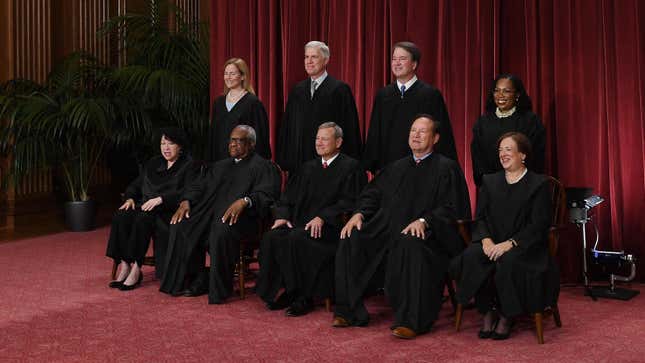Supreme Court Blocks Abortion Pill Restrictions—Likely a Temporary, Strategic Move
Mifepristone access in blue states is safe for now; but this is likely part of a larger strategy to help Republicans politically ahead of a much worse decision.
AbortionPolitics

The Supreme Court on Friday finally waded in to the huge mess that is the abortion pill lawsuit and did something sane: blocked the nonsense restrictions that lower courts wanted to impose on the pill while the case proceeds. So the drug mifepristone remains legally available in the states that haven’t banned abortion and on a gray market in states that have.
To be clear, the justices should have dismissed this case entirely, but did not. Justices Samuel Alito and Clarence Thomas wrote they would have let the restrictions take effect, with Alito arguing that there was no “threat of any real harm” if access to the abortion pill was restricted while the case proceeded. (Alito is the same judge who said 10 months ago when he wrote the opinion overturning Roe v. Wade that abortion should be an issue for states to decide, which clearly turned out to be false and disingenuous.)
-

-

-

-

-

-

-

-

-

-

-

-

-

-

-

-

-

-

-

-

-

-

-

-

-

-

-

-

-

-

-

-

-

-

-

-

-

-

-

-








































